-
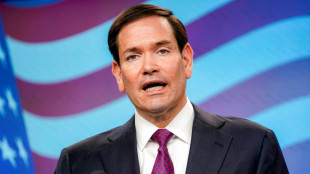 Rubio asks Qatar to stay as mediator after Israel strike
Rubio asks Qatar to stay as mediator after Israel strike
-
Drug cheats put India Olympic bid and careers at risk

-
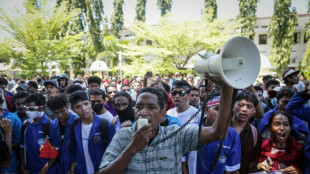 East Timor police fire tear gas on second day of car purchase protests
East Timor police fire tear gas on second day of car purchase protests
-
Austria hit with fresh spy claims after govt promises law change
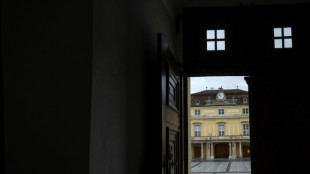
-
 Floods devastate India's breadbasket of Punjab
Floods devastate India's breadbasket of Punjab
-
In mega-city Lagos, 20 million count on just 100 ambulances

-
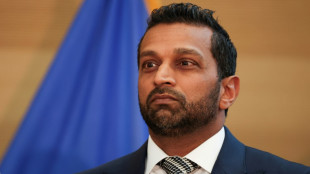 FBI chief Kash Patel faces Senate panel
FBI chief Kash Patel faces Senate panel
-
Trump says bringing $15 bn lawsuit against New York Times

-
 Israel sets Gaza 'on fire' as Rubio warns days left for deal
Israel sets Gaza 'on fire' as Rubio warns days left for deal
-
Phillies clinch first MLB division by beating Dodgers

-
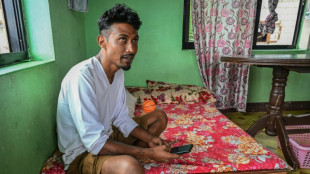 'Nothing here': Lack of jobs forces young Nepalis abroad
'Nothing here': Lack of jobs forces young Nepalis abroad
-
Rubio asks Qatar to stay as mediator after Israeli strike
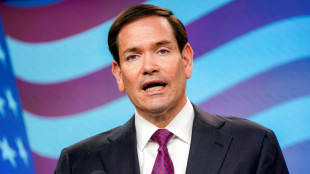
-
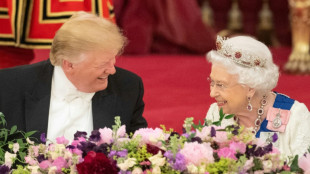 Trump set for unprecedented second UK state visit
Trump set for unprecedented second UK state visit
-
Lower US tariffs on Japan autos kick in

-
 Revamped Bayern face early test as Chelsea come to town
Revamped Bayern face early test as Chelsea come to town
-
Papua New Guinea, Australia to vow mutual defence in new treaty
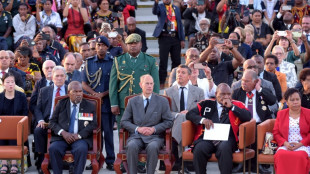
-
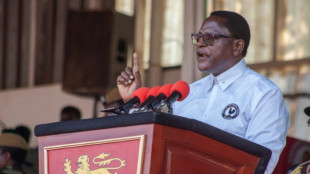 Malawi election a battle of two presidents
Malawi election a battle of two presidents
-
Asian markets rise as traders prepare for expected US rate cut
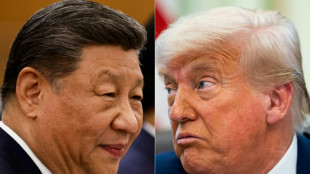
-
 Malawi votes in a rematch between two presidents as economic crisis bites
Malawi votes in a rematch between two presidents as economic crisis bites
-
Australia says social media ban will not age test all users

-
 Poland's Nawrocki talks drone defence in Paris and Berlin
Poland's Nawrocki talks drone defence in Paris and Berlin
-
Trump's fossil fuel agenda challenged in youth climate suit

-
 PSG fear impact of injuries as they put Champions League title on the line
PSG fear impact of injuries as they put Champions League title on the line
-
Papua New Guinea, Australia will commit to mutual defence

-
 Trash, mulch and security: All jobs for troops in Washington
Trash, mulch and security: All jobs for troops in Washington
-
NFL legend Brady to play in March flag football event at Riyadh

-
 Lower US tariffs on Japan autos to take effect Tuesday
Lower US tariffs on Japan autos to take effect Tuesday
-
US strikes second alleged Venezuelan drug boat as tensions mount
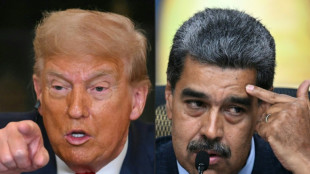
-
 Protesting Peru residents block trains to Machu Picchu
Protesting Peru residents block trains to Machu Picchu
-
US strikes another alleged Venezuelan drug boat as tensions rise
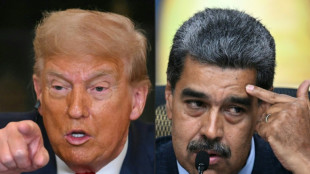
-
 White House vows to take on left-wing 'terror' movement after Kirk killing
White House vows to take on left-wing 'terror' movement after Kirk killing
-
Brazil's Amazon lost area the size of Spain in 40 years: study

-
 US Senate poised to advance Trump aide's appointment at Fed
US Senate poised to advance Trump aide's appointment at Fed
-
Sri Lanka survive Hong Kong scare for four wicket Asia Cup win
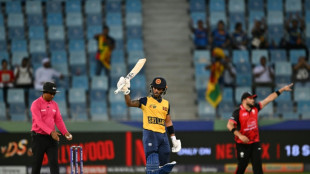
-
 Mbappe 'not anxious' over Champions League goal as Bellingham returns
Mbappe 'not anxious' over Champions League goal as Bellingham returns
-
Huge pot of Nigerian jollof rice sets Guinness record

-
 Heartbreak will help Arsenal's Champions League charge: Arteta
Heartbreak will help Arsenal's Champions League charge: Arteta
-
Europe stumped by Trump demands over Russia sanctions
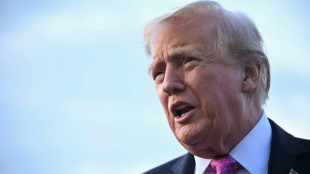
-
 Cycling fears spread of race-halting protests after Vuelta chaos
Cycling fears spread of race-halting protests after Vuelta chaos
-
'With our fists if necessary': Venezuelans prepare to defend homeland against potential US invasion

-
 Duplantis thrives on Tokyo energy to break world record again
Duplantis thrives on Tokyo energy to break world record again
-
Ex-France defender Umtiti calls time on club career

-
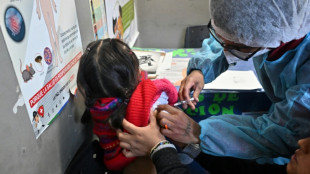 One in six US parents rejecting standard vaccine schedule: poll
One in six US parents rejecting standard vaccine schedule: poll
-
Sheffield Utd appoint Wilder for third managerial spell

-
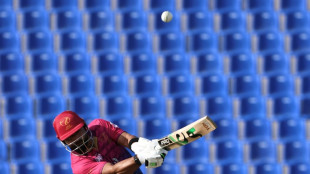 UAE hammer Oman in Asia Cup to keep Super Four hopes alive
UAE hammer Oman in Asia Cup to keep Super Four hopes alive
-
Activists on trial as France debates right to die
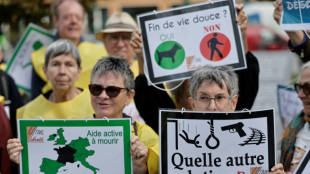
-
 Duplantis reaches new heights, Beamish makes Kiwi history at worlds
Duplantis reaches new heights, Beamish makes Kiwi history at worlds
-
Frank relishing Champions League debut with Spurs

-
 Spanish PM calls for Israel to be barred from international sport
Spanish PM calls for Israel to be barred from international sport
-
UK aristocrat, partner get 14 years for baby daughter's manslaughter

Election drubbing projected for Japan PM
Japanese Prime Minister Shigeru Ishiba's coalition lost its upper house majority in elections on Sunday, local media projected, in a result that could end his premiership.
Ishiba's governing coalition was already humiliatingly forced into a minority government after lower house elections in October, shortly after he became prime minister and called the snap vote.
Ishiba's Liberal Democratic Party (LDP) and its partner Komeito won around 41 of the 125 upper house seats contested on Sunday, short of the 50 needed to retain a majority, Nippon TV and TBS projected, based on exit polls.
The right-wing populist party Sanseito was projected to have made strong gains, winning between 10 and 22 seats, adding to the two it already holds in the 248-seat chamber.
Toru Yoshida, a politics professor at Doshisha University, told AFP before the media projections that if the coalition lost its majority, Ishiba "may need to step down".
Japan could "step into an unknown dimension of the ruling government being a minority in both the lower house and the upper house, which Japan has never experienced since World War II," Yoshida said.
At one of Tokyo's polling stations on Sunday, 54-year-old voter Atsushi Matsuura told AFP: "Commodity prices are going up, but I am more worried that salaries aren't increasing."
Another voter, Hisayo Kojima, expressed frustration that the amount of her pension "is being cut shorter and shorter".
"We have paid a lot to support the pension system. This is the most pressing issue for me," the 65-year-old said.
Ishiba's centre-right LDP has governed Japan almost continuously since 1955, albeit with frequent changes of leader.
Ishiba, 68, a self-avowed defence "geek" and train enthusiast, reached the top of the greasy pole last September on his fifth attempt and immediately called elections.
But this backfired and the vote left the LDP and its small coalition partner Komeito needing support from opposition parties, stymying its legislative agenda.
- Trumped -
Not helping is lingering resentment about an LDP funding scandal, and US tariffs of 25 percent due to bite from August 1 if there is no trade deal with the United States.
Japan's massive auto industry, which accounts for eight percent of the country's jobs, is reeling from painful levies already in place.
Weak export data last week stoked fears that the world's fourth-largest economy could tip into a technical recession.
Despite Ishiba securing an early meeting with US President Donald Trump in February, and sending his trade envoy to Washington seven times, there has been no accord.
Trump poured cold water on the prospects of an agreement last week, saying Japan won't "open up their country".
"We will not easily compromise," Ishiba said this month.
Ishiba's apparently maximalist strategy of insisting all tariffs are cut to zero -- although this could change post-election -- has also drawn criticism.
"How well his government is able to handle negotiations over US tariffs is extremely important, as it's important for the LDP to increase trust among the public," Masahisa Endo, a politics professor at Waseda University, told AFP.
- 'Japanese first' -
The last time the LDP and Komeito failed to win a majority in the upper house was in 2010, having already fallen below the threshold in 2007.
That was followed by a rare change of government in 2009, when the now-defunct Democratic Party of Japan governed for a rocky three years.
Today the opposition is fragmented, and chances are slim that the parties can form an alternative government.
The "Japanese-first" Sanseito wants "stricter rules and limits" on immigration, opposes "globalism" and "radical" gender policies, and wants a re-think on decarbonisation and vaccines.
Last week it was forced to deny any links to Moscow -- which has backed populist parties elsewhere -- after a candidate was interviewed by Russian state media.
"They put into words what I had been thinking about but couldn't put into words for many years," one voter told AFP at a Sanseito rally.
L.Meier--VB


